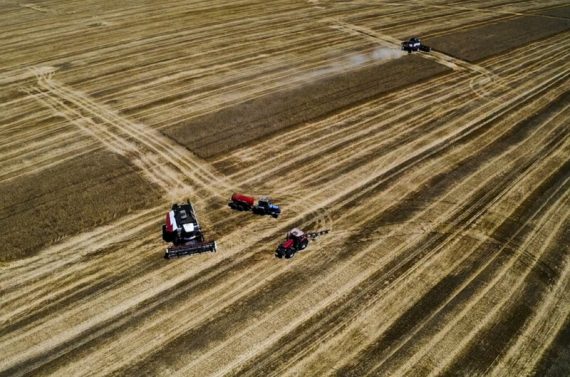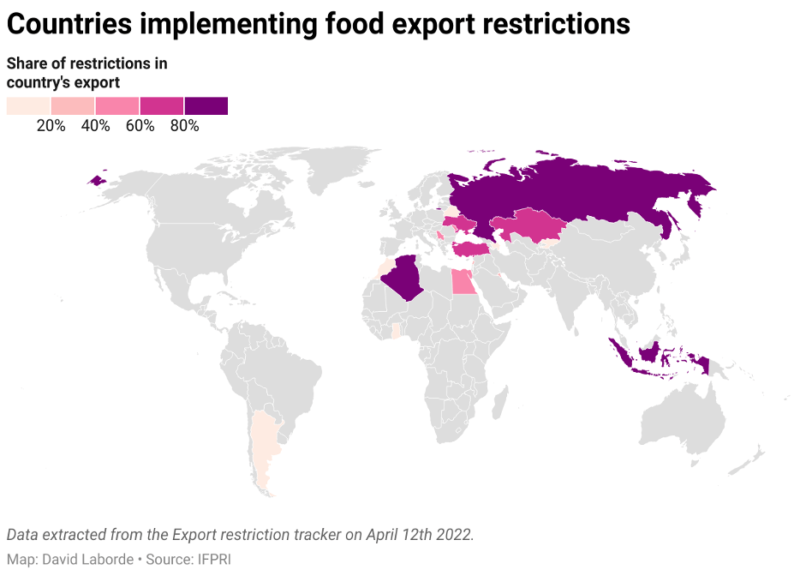M
any of us still remember the images of empty store shelves that surfed the internet during the COVID-19 pandemic in 2020. The images struck fear into the hearts of the public, which was worried about the onset of a food crisis. Sadly, similar images may resurface as news of India’s ban on non-basmati rice exports broke on July 20.
This is not the first time that India has imposed restrictions on its rice exports. In 2022, the Indian government imposed a 20% export duty on non-basmati white rice to ensure its domestic availability. This decision came at a time when the world was struggling with the economic impacts from Russia’s war in Ukraine while also recovering from the effects of the pandemic.
India is not the only country to impose export restrictions on certain food products. Other countries have taken similar measures over the past three years to protect their economic needs amid a growing global food crisis.
Food restrictions since COVID-19
When COVID-19 erupted in 2020, it caused chaos. People were in a state of panic as they rushed to stores to grab whatever they could get their hands on before the lockdown. This led to the disappearance of many food items such as rice, canned goods, meat, etc.
The food shortage alarmed governments worldwide, prompting intervention and restrictive measures to protect domestic markets from a potential food crisis. Restrictive measurements included price controls, export taxes, bans, and quantitative export restrictions.
According to a World Bank research paper, the aim of restricting food exports is to protect domestic markets from the developments occurring in the global markets. By reducing or banning exports, governments ensure that their domestic needs will be protected from global food crises.
To keep track of food export restrictions, the International Food Policy Research Institute (IFPRI) has created a Food and Fertilizer Export Restrictions Tracker. Since 2020, wheat, rice, and sunflower seeds/oil appear to be the most banned items in terms of export restrictions. Countries that have banned these products include Romania, Russia, India, Armenia, Kazakhstan, Kyrgyzstan, and Cambodia.
IFPRI has compiled a full list of countries that restricted exports of certain food products since COVID-19 and has kept track of their developments.
A consequence of the war in Ukraine: A global food crisis
When COVID-19 was over, food trade and export could have returned to normal. But then war broke out between Russia and Ukraine, forcing another wave of food export restrictions. Ukraine, known as the “breadbasket of Europe” for being one of the top grain exporters on the continent, was attacked by Russia on February 24, 2022.
As a result, the Ukrainian supply chains were disrupted, and this continues to affect global food security today. In addition, Ukraine has since restricted food exports to ensure the availability of food for its population. This once again alarmed the world, which is heavily dependent on Ukraine; Ukraine produces 50% of the world’s sunflower oil, 10% of the world’s grain, and 13% of the world’s corn.
The shortage of food supplies caused by the war has forced governments to adopt restrictive policies on food exports. Since the Russian invasion, the number of countries imposing food export restrictions has increased to 16% according to IFPRI.
The most affected products include wheat, palm oil, corn, sunflower oil, and soybean oil. Countries which banned and/or restricted these products include Russia, Ukraine, Indonesia, Kazakhstan, and Kyrgyzstan.
The Black Sea Grain Initiative
On July 22, 2022, Russia and Ukraine, along with Turkey and the UN, signed the Black Sea Grain Initiative. The agreement allowed for the safe transportation of grain and foodstuffs from Ukrainian ports. According to the European Council, the initiative managed to safely export about 33 million tons of grain and foodstuff to 45 countries, making a significant contribution to the fight against the global food crisis.
On July 17, Russia withdrew from the initiative when its request for increased food shipments was not met. This sparked a wave of global condemnation since Russia is unilaterally blocking Ukraine’s main export route. According to the European Council, the Russian invasion is further exacerbating the global food crisis.
U.S. Secretary of State Antony Blinken accused Russia of “weaponizing food.” Last year, Yale historian Timothy Snyder claimed that Russia’s move to starve the world is “a new level of colonialism.”
The prices of key commodities such as wheat and corn have skyrocketed, raising global concerns around hunger. Coupled with India’s ban on non-basmati rice exports, global warming, and rising inflation rates worldwide, a humanitarian food crisis is looming.
The impact of export restrictions on global food security
As most governments impose restrictions on food exports to protect their domestic interests, the entire world suffers the consequences. According to a World Bank’s recent report, the global food crisis has worsened as food trade restrictions have increased.
Since June 5, 2023, 20 countries have implemented 27 food export bans and ten countries have implemented 14 export-restricting measures. The effects of these restrictions are driving up food costs and creating instability in the market. In addition, Aljazeera has reported that the local food prices in many developing countries continue to rise due to the devaluation of their local currencies.
The chief economist at the United Nations’ Food and Agriculture Organization Maximo Torero has warned about rising food prices which he believes will lead to a potential global food crisis if the trend is not reversed immediately.
Recommended
A potential food crisis?
Following India’s steps, the United Arab Emirates and Russia have declared bans on their rice exports. On July 28, 2023, the UAE announced that it will temporarily suspend rice exports for four months. The next day, Russia also declared a ban on rice exports until December 31, 2023, to protect its domestic market.
Over three billion people worldwide rely on rice for their livelihood and its demand continues to grow. Pierre-Olivier Gourinchas, an economist at the International Monetary Fund, told Reuters that India’s ban could exacerbate food price inflation.
The World Food Programme (WFP) recently reported that more than 345 million people are struggling with food insecurity in 2023. In just two years, the number has jumped from 135 million to 345 million. Unfortunately, this number will continue to grow as countries continue to restrict food exports amid conflict and climate shocks.
The WFP warns that we are facing a global food crisis of “unprecedented proportions.” Unless governments cooperate to meet people’s immediate food needs, the world is destined for a global hunger catastrophe.






